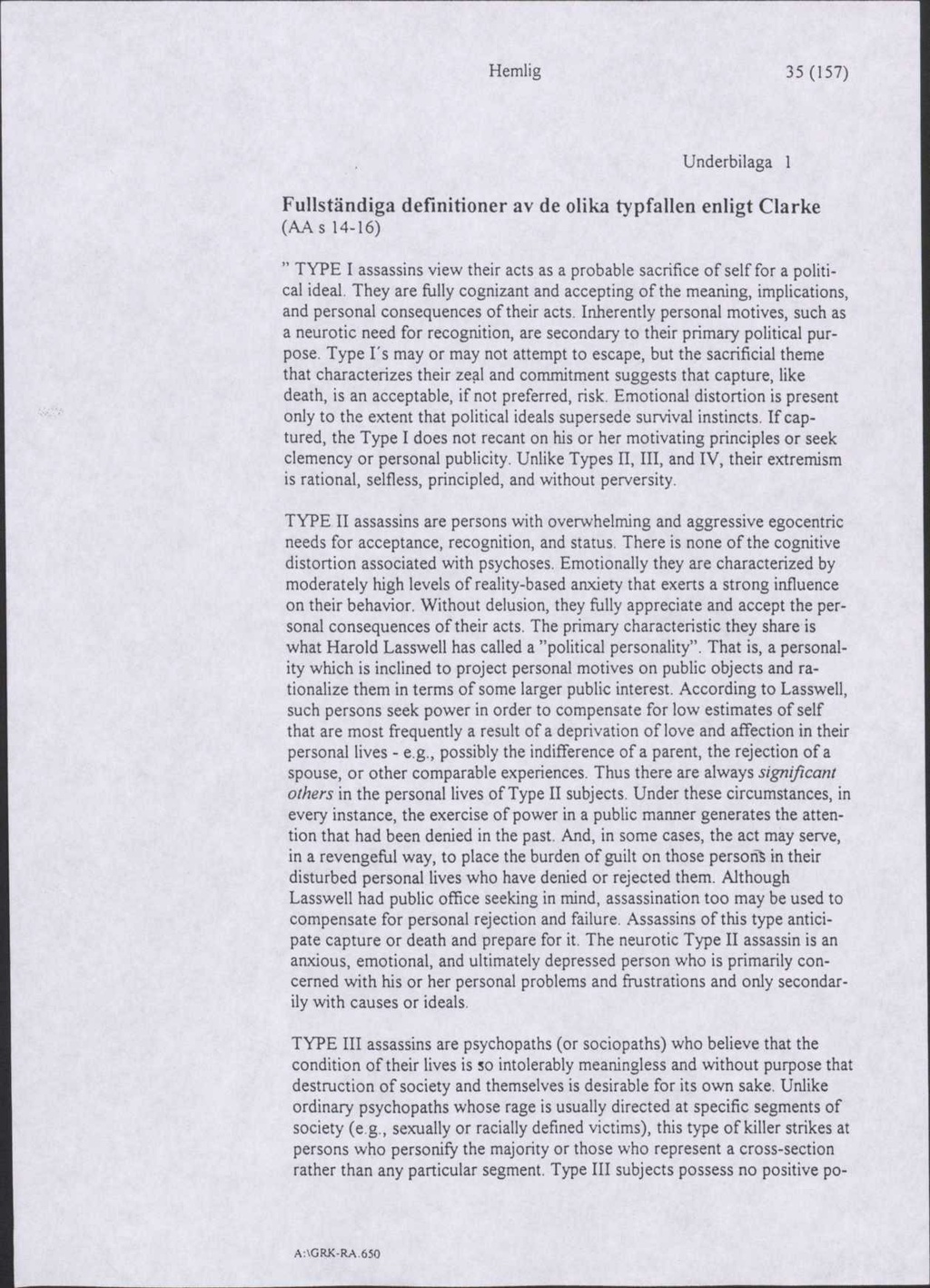Underbilaga 1
Fullständiga definitioner av de olika typfallen enligt Clarke (AA s 14-16)
" TYPE I assassins view their acts as a probable sacrifice of self for a political ideal. They are fully cognizant and accepting of the meaning, implications, and personal consequences of their acts. Inherently personal motives, such as a neurotic need for recognition, are secondary to their primary political purpose. Type I's may or may not attempt to escape, but the sacrificial theme that characterizes their zeal and commitment suggests that capture, like death, is an acceptable, if not preferred, risk. Emotional distortion is present only to the extent that political ideals supersede survival instincts. If captured, the Type I does not recant on his or her motivating principles or seek clemency or personal publicity. Unlike Types II, III, and IV, their extremism is rational, selfless, principled, and without perversity.
TYPE II assassins are persons with overwhelming and aggressive egocentric needs for acceptance, recognition, and status. There is none of the cognitive distortion associated with psychoses. Emotionally they are characterized by moderately high levels of reality-based anxiety that exerts a strong influence on their behavior. Without delusion, they fully appreciate and accept the personal consequences of their acts. The primary characteristic they share is what Harold Lasswell has called a "political personality”. That is, a personality which is inclined to project personal motives on public objects and rationalize them in terms of some larger public interest. According to Lasswell, such persons seek power in order to compensate for low estimates of self that are most frequently a result of a deprivation of love and affection in their personal lives - e.g., possibly the indifference of a parent, the rejection of a spouse, or other comparable experiences. Thus there are always significant others in the personal lives of Type II subjects. Under these circumstances, in every instance, the exercise of power in a public manner generates the attention that had been denied in the past. And, in some cases, the act may serve, in a revengefUL way, to place the burden of guilt on those persons in their disturbed personal lives who have denied or rejected them. Although Lasswell had public office seeking in mind, assassination too may be used to compensate for personal rejection and failure. Assassins of this type anticipate capture or death and prepare for it. The neurotic Type II assassin is an anxious, emotional, and ultimately depressed person who is primarily concerned with his or her personal problems and frustrations and only secondarily with causes or ideals.
TYPE III assassins are psychopaths (or sociopaths) who believe that the condition of their lives is so intolerably meaningless and without purpose that destruction of society and themselves is desirable for its own sake. Unlike ordinary psychopaths whose rage is usually directed at specific segments of society (e.g., sexually or racially defined victims), this type of killer strikes at persons who personify the majority or those who represent a cross-section rather than any particular segment. Type III subjects possess no positive po
